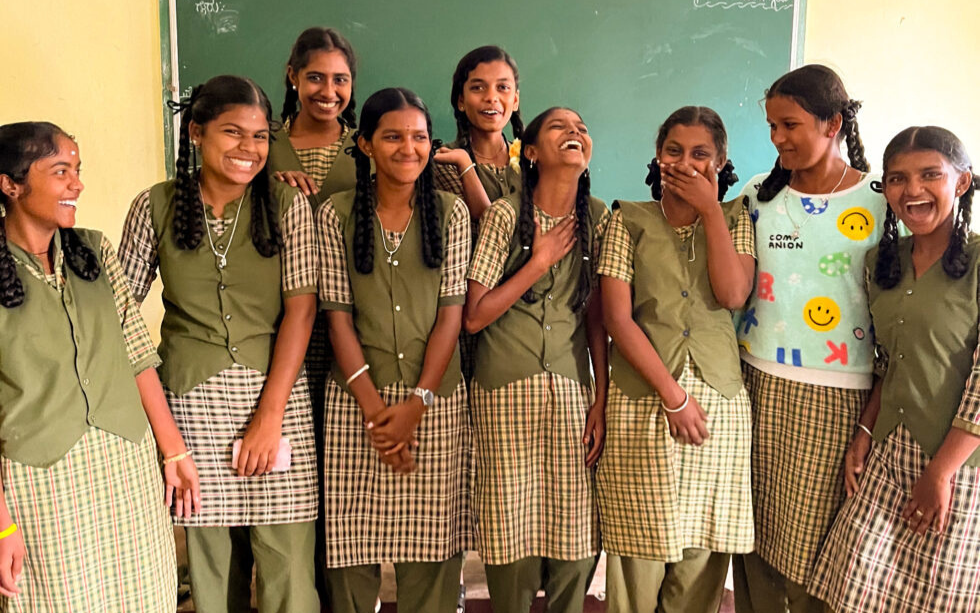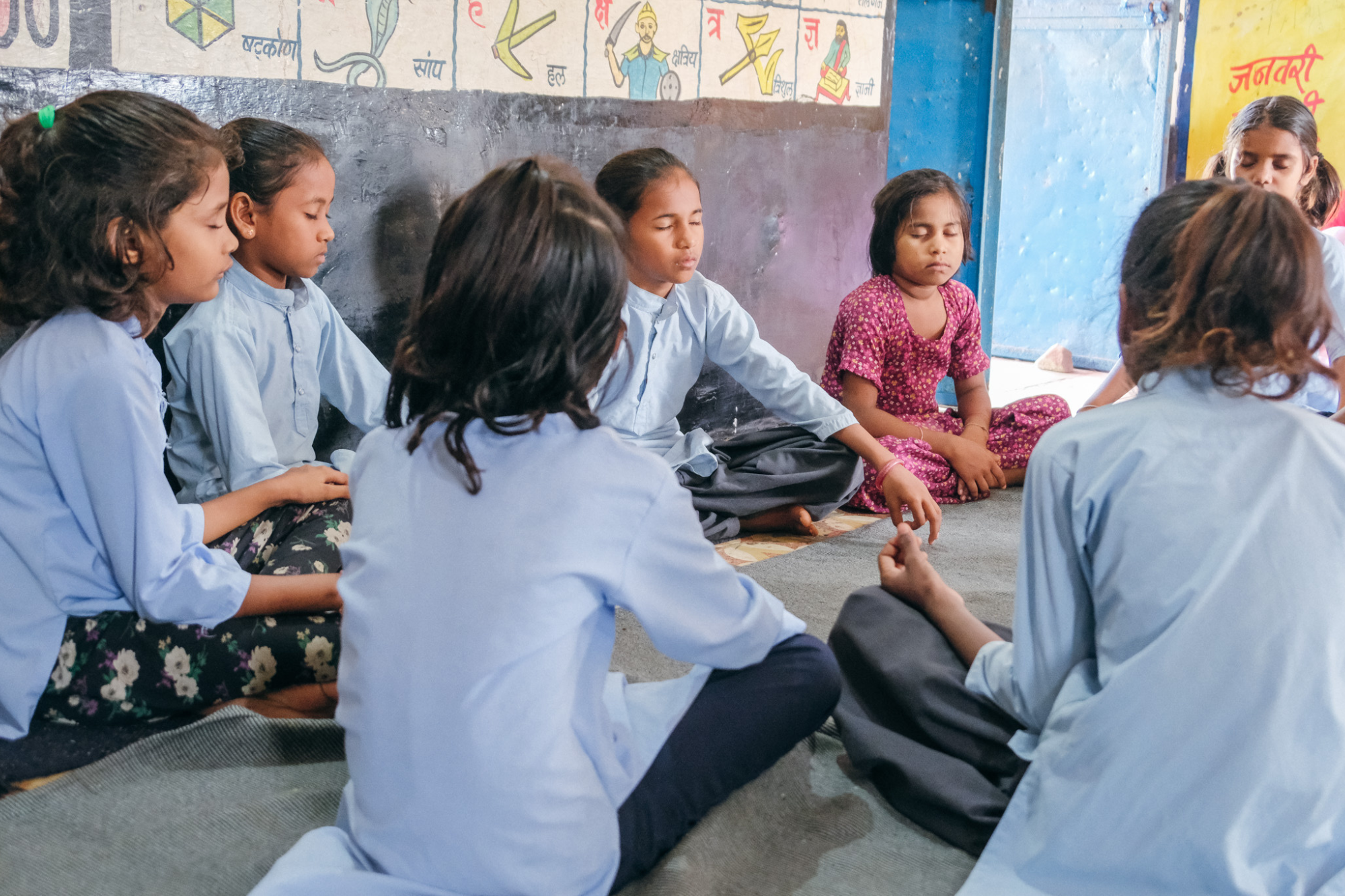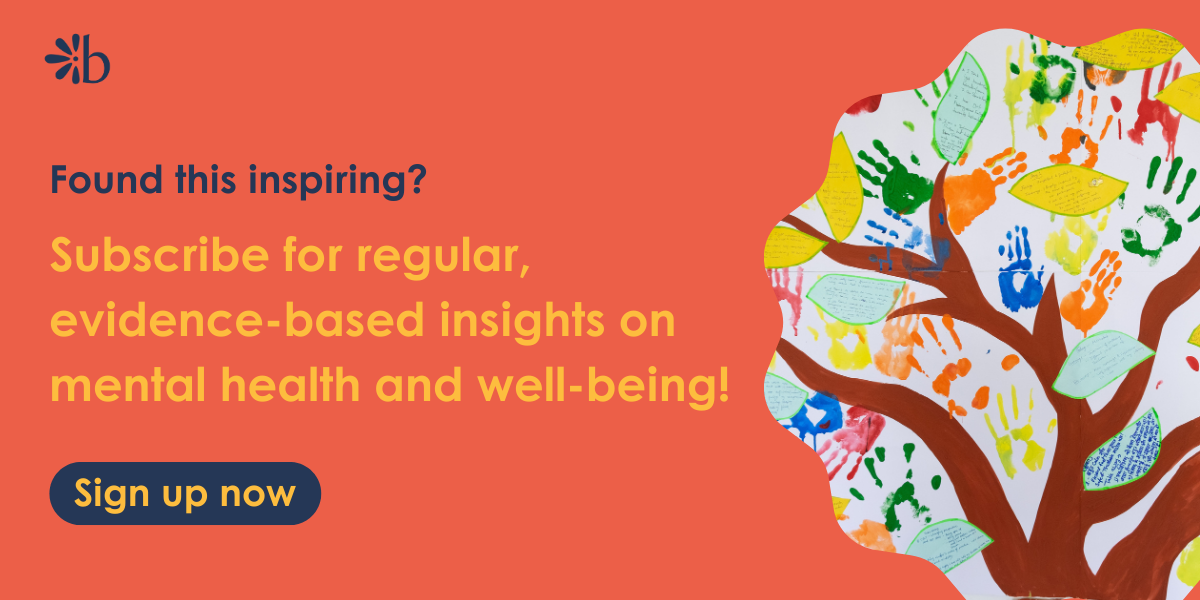“For the first time in my life, as a woman I am learning to take care of myself. It’s only by loving ourselves that we learn to love others.” – Usha Babbar, teacher, Rajasthan, India
The world is abuzz with fresh questions about how gender norms and traditions affect everyone. While global statistics on women and girls still show that equality, as the UN defines it, has not been achieved, we’re also concerned about how boys and men are “falling behind” girls in many parts of the world. There’s recent evidence that the global preference for baby boys has declined dramatically. Furthermore, full gender inclusion remains rare in most places, leaving out the most marginalized members of our society.
At Brio, we believe gender equity is important for everyone. The fullness of humanity is expressed in diverse and glorious ways, and we desire for all people to experience welcome and wholeness, no matter where they live.
Strengthening mental health skills– especially psychological flexibility with a liberation lens— can help shift not only our external realities through behavior change, but also our internal narratives around rigid gender norms and expectations. In our work with girls and women, we’ve seen this happen in transformative ways.
Despite progress, girls and women continue to experience life-limiting realities— and worse mental health
In many contexts where we’ve worked, traditional gender norms are entrenched and ultimately life-limiting. For women and girls living in heavily patriarchal cultures and systems, they experience these limitations as restrictions on their behavior from speaking up or leaving the house; expectations of service or subservience within the family; and shifting perceptions of their dignity and potential as they enter adolescence. Violence against women and girls also tragically endures around the world— and our program contexts are no exception.
When we consider the impact of gender-based discrimination, oppression, and violence against women and girls, it’s unsurprising to find that global mental health statistics appear to reflect this reality. Women and girls are believed to be at greater risk of poor mental health than men, according to a variety of data points.
There needs to be a way forward: addressing both the external behaviors and systems that affect women and girls, as well as helping women, girls, and everyone in the community build new narratives about gender. Mental health is critical to this process.
Why mental health is key to shifting our gender-based narratives and behaviors
If gender inequity means limits on daily life, then what does it mean for girls and women to experience more vitality, agency, and freedom? The answer isn’t as clear-cut as simply ensuring that policies or practices change, though important. It’s also about understanding what they want in life— what matters to them— and whether they feel that those values-aligned actions are within reach. This is why underlying mental health skills matter: they help clarify what’s truly important.
At Brio, we’ve worked with girls and women across various stages of life: elementary school ages 6-10, adolescent girls ages 13-18, and women who are young mothers, early professionals, or social change workers. While in each of these stages they experience gender norms differently, there are many commonalities about what it means to be female.
Cultivating mental health skills, primarily those that comprise psychological flexibility and liberation, has led to transformative shifts. These mental processes are a critical part of how all of us can overcome internalized forms of inequity and oppression: how we perceive our abilities, the “rules” we follow, the risks we are willing to take, the burdens and obligations we carry. These narratives and norms exist as thoughts and beliefs that we carry around with us.
Psychological flexibility and liberation skills are not about getting rid of these thoughts, or even struggling with them, but changing our relationship with them. They may remain present in our minds and culture, but we don’t have to let them drive. Once we notice and name these norms and beliefs as they are, we can actually do something about them. We can choose to respond differently to their existence, so that we are less controlled by them.
While the external realities of gender inequity are very real and even enforced socially, we cannot move forward without also addressing what happens inside of us. As it turns out, a lot can change within individuals, even before the systems and norms around them change as well. In fact, they can become a vital part of that external change as a result of the changes they’re making in their own lives.
How mental health skills are strengthening girls and women in everyday life
1) Girls are overcoming the fear of self-expression and using their voice.
In Rajasthan, India, where we’ve been partnering with Kshamtalaya to design mental health and wellbeing programs for teachers and children, we’ve witnessed a key shift in the way female students behave in the classroom.
One of the key outcomes of positive mental health skills amongst children in the Rajasthan context is self-awareness and self-expression. When children are able to notice the sensations, thoughts and feelings that are emerging, they can shift toward choosing to share or ask questions. The program Khushi Shala, which is scaling statewide, teaches these skills.
It shows up in the data too— girls, who started off reporting the lowest levels of perceived self-efficacy on core life skills, improved the most. 69% of girls improved significantly within 5 months of participating in the program.
“For me, where I work, girls usually have a shy nature… However, after this class, I noticed that the girls are responding more, showing more interest. If they don’t like something, they now express it.
Boys tend to open up after a certain point, but with girls, it’s harder for them to build trust. They often think, ‘If I speak up, I’ll be mocked.’ But after these classes, a sense of confidence has emerged. Everything, in some way, is connected to sensitivity, and now they express what they like or dislike. Children also make paintings, and such activities help connect with them better. Earlier, even saying ten lines about themselves felt challenging.
After Khushi Shala, not only am I able to express myself better, but the children are also becoming more expressive. Their shyness has reduced significantly.”
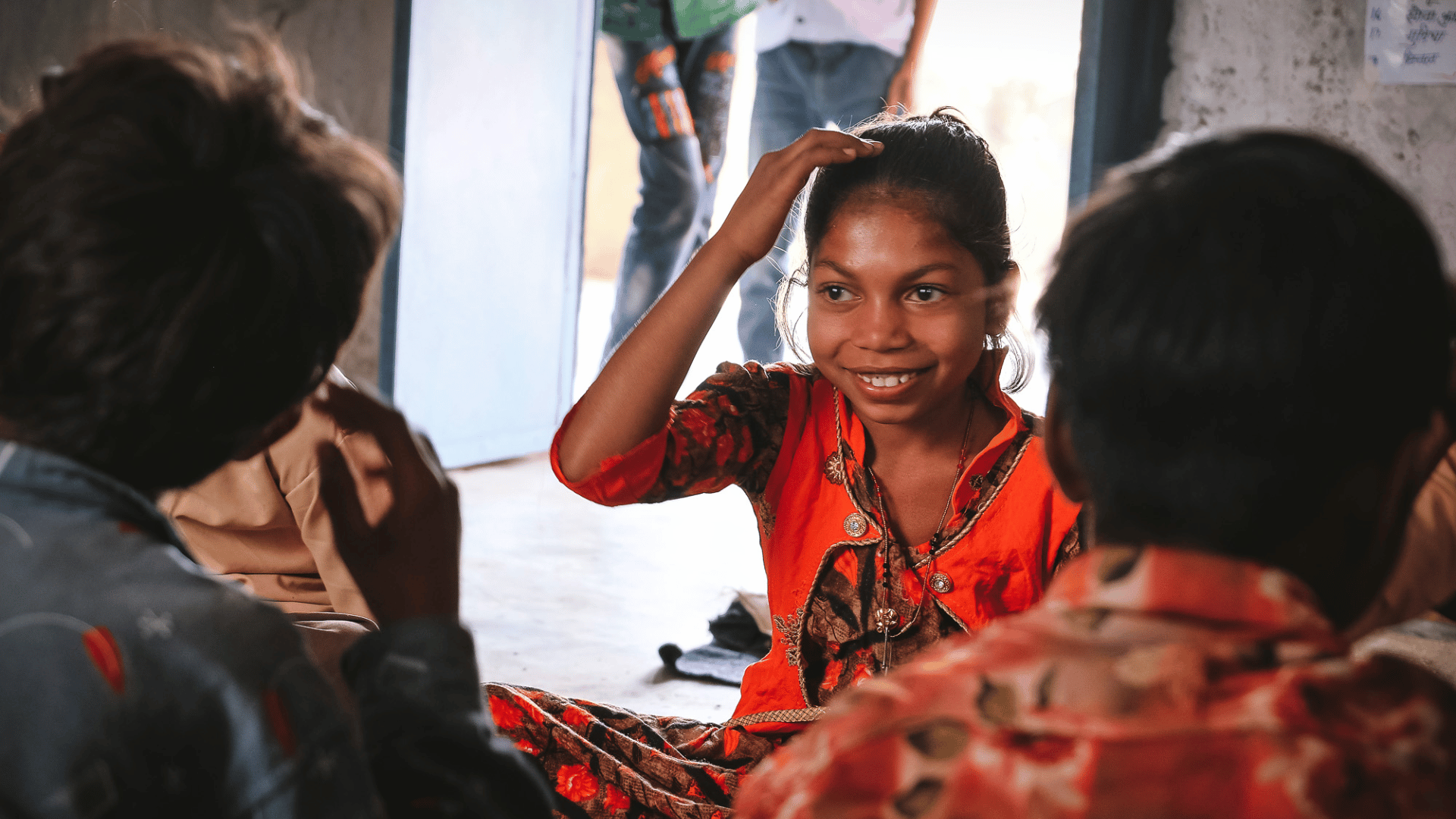
2) Adolescent girls are identifying what matters to them and taking meaningful action.
When we worked with Uninhibited to integrate mental health into their menstrual health awareness and education program, it became clear that the threshold of adolescence held so much more than the physical shifts that we think of. As girls reach puberty, their world changes— the way family and community members interact with them as no longer “children” affects their experiences deeply.
One of the challenges that adolescents face is feeling trapped in their changing circumstances: restrictions on their freedom, a lack of understanding from parents and peers, and the overwhelming changes in their bodies. Based on interviews with participants, we focused three intensive sessions focusing on what the girls expressed interest in: personal confidence, relating with family and friends, and planning for their future.
During the sessions, girls learned the basics of psychological flexibility, using stories from Uninhibited’s programs, artistic expression, and meaningful discussion. We introduced a tool called the “choice point tool,” which maps what it looks like to make choices in alignment with personal values. The tool simply helps young people identify moments in which they can make a choice— either toward or away from what matters most to them. The initial response from participants was overwhelmingly positive— they wanted more time spent on these topics and felt inspired to make choices reflecting what was important to them.
Adolescence and puberty are difficult phases; many of us adults can recall that turbulent time. Mental health skills enable girls to make values-aligned decisions at this key moment in their lives, even if there are thoughts, feelings, and circumstances that are challenging and even overwhelming. And when they learn these skills at a critical life stage, they carry them into adulthood as young women.
“I couldn’t focus on my studies or finish my homework. But then, Geetha mam (facilitator) had a session about making a choice point. After that, I decided to make decisions for myself, even if others think differently. Now, I’m learning to be brave and not dwell on old things.”
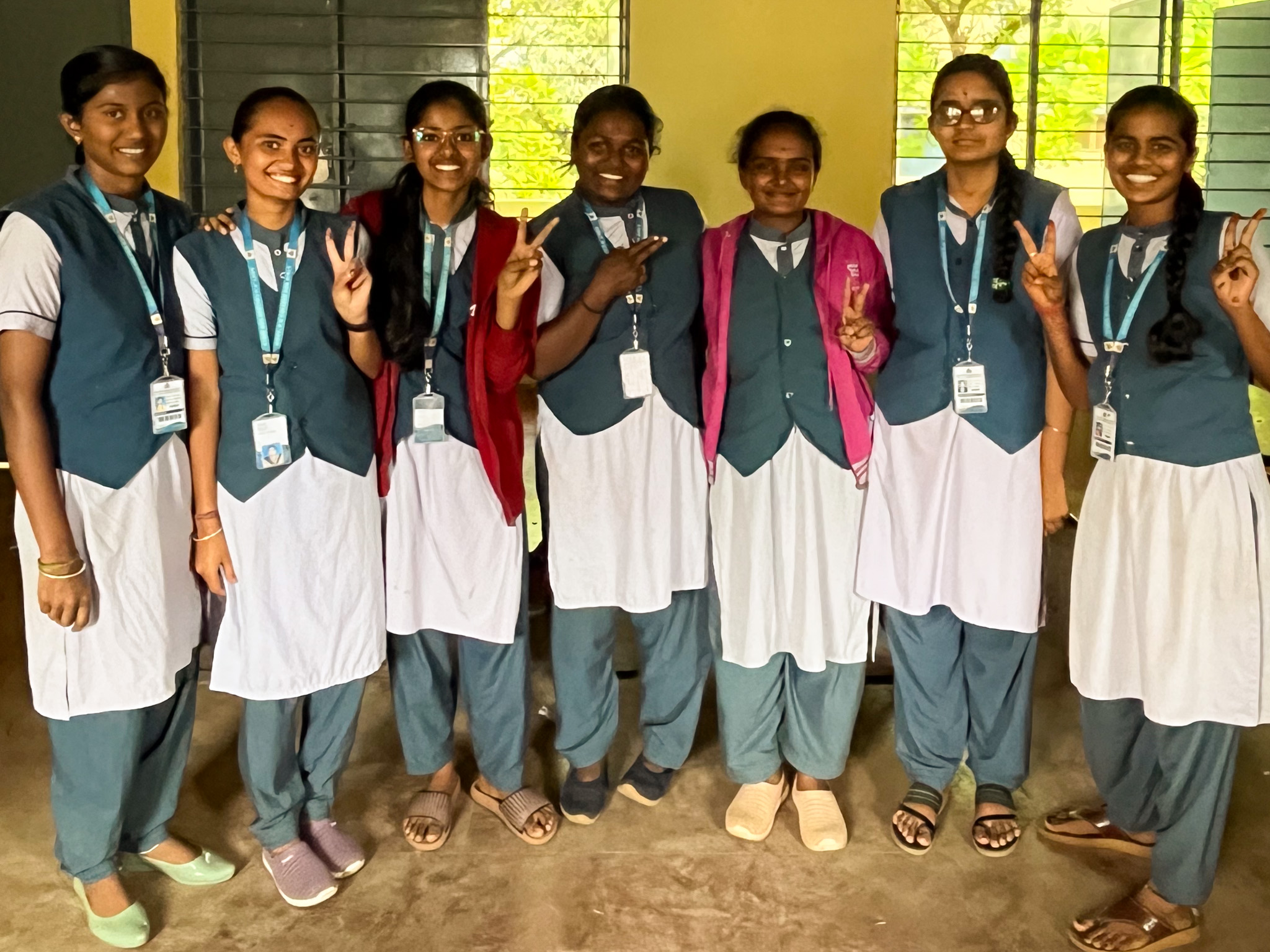
3) Women are releasing the burdens they no longer want to carry, and advocating for each other.
Often called the most persecuted minority in the world, the Rohingya have experienced years of violence, oppression, and statelessness. Even as they leave their homeland in Myanmar for refugee in neighboring countries, life continues to be extraordinarily difficult. Traditional gender dynamics layered upon the refugee experience create even more challenges for women.
A community of Rohingya women in Malaysia shared their experiences with us, and we co-created a program to help them build psychological flexibility skills to navigate the ongoing challenges of life as a refugee.
As a result of community engagement in the design, the program led to outstanding outcomes, including high levels of commitment and engagement from participants, as well as improved self-awareness, stability, mutual support, and values-derived action within the group. Through qualitative interviews and reflections, women participants shared that they experienced higher levels of agency in their own lives— being able to make difficult choices with a sense of stability and connectedness.
They also shared stories about how they served and supported their neighbors, building solidarity and help rather than isolation. One woman shared feeling more courageous about advocating for healthcare access and public justice for her friend, which was a risky but heroic step for overall community safety. Furthermore, the women expressed that they had more patience for their children, and were looking forward to learning language and work skills.
Importantly, participants talked about the burdens of their past that often affected them, not only because of haunting memories, but because many well-meaning organizations perceived them through the lens of what they went through. They shared about being viewed as victims and how that affected them. And they said that mental health skills allowed them to consider how to move forward in their lives, despite what happened.
“People tell us how bad it is to be married as a child, or to be treated the way we were treated. But we can’t change our past, what has already happened to us. Mental health has helped us think about today and tomorrow, and live life in a new way.”

Psychological flexibility is key to shifting broader cultural norms— which includes everyone.
Mental health skills have the power to help us lead lives that reflect more of what we value, allowing us to embody the chosen qualities that are important to us. It expands the range of circumstances where we can be free to choose our next steps, even if ongoing challenges persist.
However, we cannot address the complexities of gender norms and traditions without including everyone. And even then, it’s not just about systems, policies and practices, though those are crucial. It is also crucial to help individuals and communities be open to reimagining what people of all genders are capable of, and to honor their dignity.
This shift in beliefs and cultures is extremely difficult and important work. Skills like psychological flexibility help us to view our thoughts and beliefs with a sense of openness and curiosity rather than rigidity or judgment. By helping more people become more psychologically flexible, we create openings for them to consider new ideas and perspectives. When we feel safe enough to be curious about our deeply-held beliefs— not judged, but willing to consider a different perspective— personal and collective change becomes possible.

